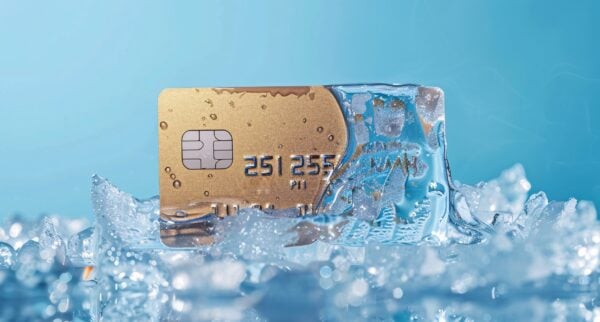Nearly all financial institutions depend on credit scores to make swift and accurate lending decisions. FICO Scores are most commonly used, but VantageScores are also becoming popular. Although these companies are separate and have developed different mathematical models, one aspect is the same: payment history is the top factor impacting your credit score. Payment history comprises 35% of a FICO Score and 40% of a VantageScore.
➤ LEARN MORE:VantageScore vs. FICO Score: A guide to understanding different credit scoring models
Credit utilization – that is, the amount of available credit you have that you’re utilizing – is a close runner up, counting as 30% of your credit score for the FICO scoring model, and 20% for VantageScore. Other factors like credit history length, new credit obtained, and mix of credit accounts are influential as well, but it’s your payment history that plays the most powerful role in determining your score overall.
What payment history means to lenders
Lenders do not want to lose money. When they extend you a loan or line of credit, they expect to be repaid. If the account is unsecured and you run up a debt but don’t follow through on payments, getting that money back can be time consuming, expensive, and not guaranteed.
Consequently, a lender wants to be as confident as possible that you will manage the account as per the agreement.
One of the primary indicators that you may be a responsible borrower is if you’ve been one in the past. A lender values a steady payment history across many accounts and over a long time period because it demonstrates responsibility.
On the other hand, delinquencies are a red flag. If you were late with your other accounts, there’s a higher probability that you might also be late with them – or worse, not pay at all.
How is payment history recorded?
When you borrow money from a financial institution, that lender will report your account activity to the three major credit bureaus: TransUnion, Equifax, and Experian.
In addition to details such as the date you opened the account and your most recently reported balance, the lender will furnish the bureaus with a detailed two-year history of your payment activity. This will appear in the trade lines section of your credit file.
When your credit report is pulled, any late-payment history will be flagged.
If a late payment is older than two years but younger than seven years, your credit report will indicate the date it occurred and on which account, but it will not be included in the detailed monthly payment history.
When do creditors mark payments as late?
Whatever type of credit product you have, the lender sets the date that payments are due. If you pay after that date, the lender may assess a late fee that will be added to the amount that you owe, and if you have a credit card it can also trigger lenders to raise your APR.
But does that mean that if your payment is due on the first and you don’t get it in until the fifth that the lender will report the account as delinquent to the credit bureaus? No.
A late payment can only be placed on your credit file after you have missed a full billing cycle. Therefore if your payment was due on Jan. 1 and you still haven’t paid by Feb. 1, the lender will notify the bureaus that you are now 30 days late.
Recency, severity and frequency are considered
Will one 30-day late payment on an $80 statement that happened five years ago ring a lender’s alarm bells? Probably not.
Credit scoring companies do not reveal exactly how they calculate information included in the payment history category, but we do know that recency, severity, and frequency of delinquencies are factored in.
A single, small late payment made many years ago that wasn’t repeated will probably be viewed as an anomaly instead of a pattern of irresponsible behavior. Conversely, a bunch of missed payments that occurred recently, especially if the debts are high, are definitely cause for concern.
How many on-time payments are considered good?
As many as possible!
When you first start with credit and only have one account, a predictive pattern of behavior can’t be established. That’s why your scores will start out on the low end. When you work your way up with more accounts that you pay on time (in addition to keeping balances low as compared to credit limits), your credit score should also rise.
It also helps to have a mix of credit products that you handle responsibly with timely payments. For example, if you have three credit cards, one car loan and a mortgage, all of which you have paid on time over the course of several years, you will likely look like a credit pro to future lenders.
Can you have late payments removed?
In general, no. If the information is correct and timely, a late payment will remain on your credit file and will be inputted into your credit score for a total of seven years from when it was first reported.
If the late payment is inaccurate or older than seven years, though, you can dispute it. You may want to start with the lender, explaining why they’re wrong and ask them to update your report. You may also (or instead of) dispute the late payment with the credit bureau. Once done, they will conduct an investigation, and if you are in the right, the negative mark will be removed.
➤ SEE MORE:How to dispute and fix credit report errors
In the event a debt has gone so far behind that a collection agency has taken over the account, you may have some leeway. It’s possible to negotiate with the collector to pay the debt or settle for a smaller sum, on the condition that they no longer will report the account. Since debts in collections are factored into the payment history portion of your scores, having it purged from your report can give your score a boost. Just be aware that collectors are under no obligation to accept your terms.
Bottom line
If you are turned down for a credit card or loan because of late payments that you made for a good reason (such as an emergency that prevented you from having enough money to make the payment on time) you may want to appeal to the lender. Contact them and explain that the late payments are not an indication of your character, but due to an unusual circumstance.
You can also add a statement to your credit file. In 100 words or fewer, offer your explanation. The statement will not change your credit score, but if a lender does pull your report, it will see your reason which may result in a positive decision.
Everybody makes mistakes, and many times that can include missing a credit card or loan payment. However, skipping an entire payment cycle is serious, so do what it takes to get it in before the dreaded delinquency makes its way to your credit report.


